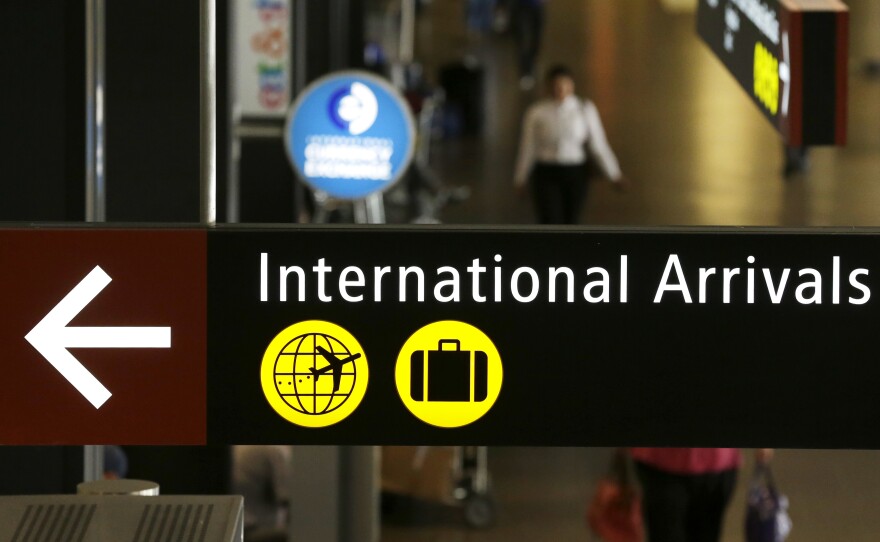The Trump administration is expected Thursday to announce how it will implement its modified travel ban, following the Supreme Court's decision on Monday lifting a stay on the executive order imposed by two lower courts.
The order bars travelers from Iran, Libya, Somalia, Sudan, Syria and Yemen from entering the U.S. for 90 days from when it takes effect, in order to allow the government to review its vetting procedures for people from those majority-Muslim nations. (The order originally included people from Iraq as well, but that nation was dropped after the administration realized its inclusion would hurt cooperation from the Baghdad government in the fight against ISIS.)
The modified order also bars refugees from entering the U.S. for 120 days.
In at least a partial victory for President Trump, the high court lifted the stay, issued by federal courts in Maryland and Hawaii, that had prevented the order from taking effect, while the justices consider whether the ban is constitutional. During the course of litigation over the revised ban, the president directed his administration to begin implementation "72 hours after all applicable injunctions are lifted or stayed," which would be Thursday.
The court ruled that the ban should only apply to "foreign nationals who lack any bona fide relationship with a person or entity in the United States." That would seem to mean that people with relatives in the country or students or those with jobs here would be excluded from the ban.
And it's unclear how that language will be applied to refugees, who may not have family members here but do have established relationships with sponsoring organizations.
As NPR reported earlier this week, the initial version of the travel ban, issued Jan. 27, "caused chaos at airports across the country until it was blocked by a federal judge in Washington state" on Feb. 3, a ruling that was upheld by the U.S. Court of Appeals for the 9th Circuit. That prompted the administration to craft a revised version in March that omitted references to religion and specifically exempted green card holders. But that order, too, was challenged by lawsuits. It was blocked by lower courts in Maryland and Hawaii, decisions also upheld by appeals courts, and never took effect.
The State Department said Wednesday that once the order is implemented, it will process visa applications for nationals of affected countries "as directed by the Executive Order and in full compliance with the Supreme Court's decision."
The administration has said the order will be implemented "in a professional, organized and timely way."
Various advocacy groups are also seeking guidance as to what constitutes "a bona fide relationship" with a person or entity in the U.S.
In a letter to the Department of Homeland Security, the groups — including Muslim Advocates, the Southern Poverty Law Center and Americans United for Separation of Church and State — said, "The public is in urgent need of information about the manner which persons can establish a 'bona fide relationship with a person or entity in the United States,' the precise criteria for adjudicating waiver requests."
"We seek the requested material," the letter also said, "in order to provide our organizations and affected communities with the information necessary to make this waiver process meaningful."
Copyright 2017 NPR. To see more, visit http://www.npr.org/.






